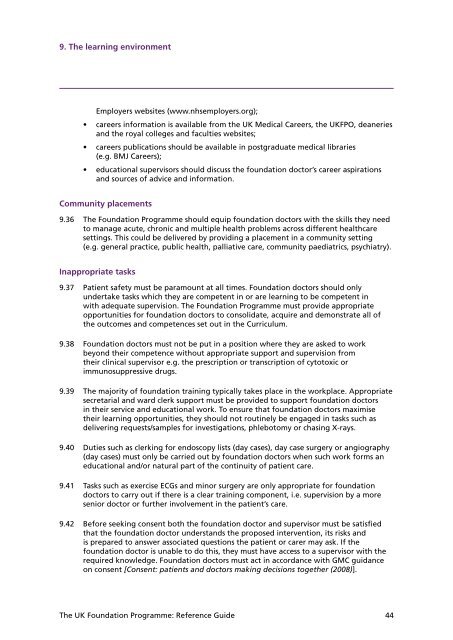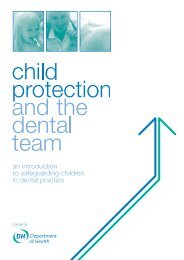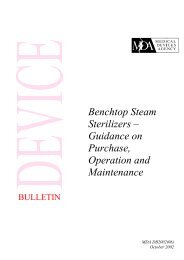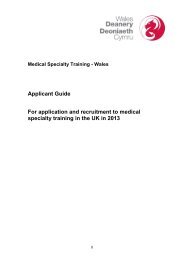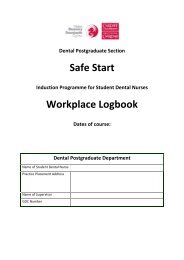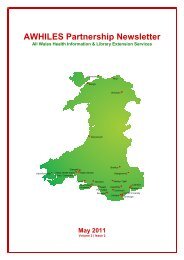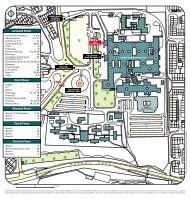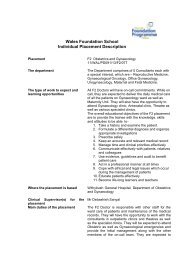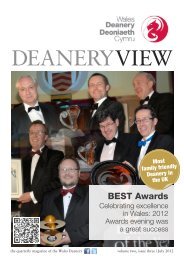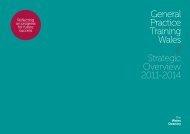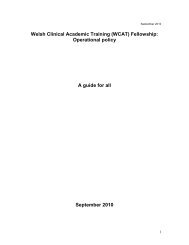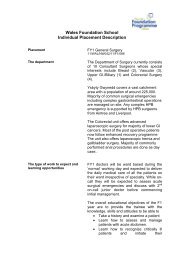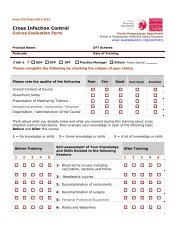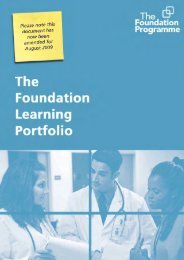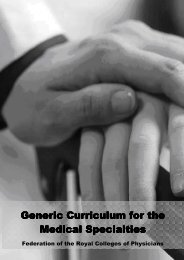The Foundation Programme Reference Guide - Academy of Medical ...
The Foundation Programme Reference Guide - Academy of Medical ...
The Foundation Programme Reference Guide - Academy of Medical ...
You also want an ePaper? Increase the reach of your titles
YUMPU automatically turns print PDFs into web optimized ePapers that Google loves.
9. <strong>The</strong> learning environmentEmployers websites (www.nhsemployers.org);• careers information is available from the UK <strong>Medical</strong> Careers, the UKFPO, deaneriesand the royal colleges and faculties websites;• careers publications should be available in postgraduate medical libraries(e.g. BMJ Careers);• educational supervisors should discuss the foundation doctor’s career aspirationsand sources <strong>of</strong> advice and information.Community placements9.36 <strong>The</strong> <strong>Foundation</strong> <strong>Programme</strong> should equip foundation doctors with the skills they needto manage acute, chronic and multiple health problems across different healthcaresettings. This could be delivered by providing a placement in a community setting(e.g. general practice, public health, palliative care, community paediatrics, psychiatry).Inappropriate tasks9.37 Patient safety must be paramount at all times. <strong>Foundation</strong> doctors should onlyundertake tasks which they are competent in or are learning to be competent inwith adequate supervision. <strong>The</strong> <strong>Foundation</strong> <strong>Programme</strong> must provide appropriateopportunities for foundation doctors to consolidate, acquire and demonstrate all <strong>of</strong>the outcomes and competences set out in the Curriculum.9.38 <strong>Foundation</strong> doctors must not be put in a position where they are asked to workbeyond their competence without appropriate support and supervision fromtheir clinical supervisor e.g. the prescription or transcription <strong>of</strong> cytotoxic orimmunosuppressive drugs.9.39 <strong>The</strong> majority <strong>of</strong> foundation training typically takes place in the workplace. Appropriatesecretarial and ward clerk support must be provided to support foundation doctorsin their service and educational work. To ensure that foundation doctors maximisetheir learning opportunities, they should not routinely be engaged in tasks such asdelivering requests/samples for investigations, phlebotomy or chasing X-rays.9.40 Duties such as clerking for endoscopy lists (day cases), day case surgery or angiography(day cases) must only be carried out by foundation doctors when such work forms aneducational and/or natural part <strong>of</strong> the continuity <strong>of</strong> patient care.9.41 Tasks such as exercise ECGs and minor surgery are only appropriate for foundationdoctors to carry out if there is a clear training component, i.e. supervision by a moresenior doctor or further involvement in the patient’s care.9.42 Before seeking consent both the foundation doctor and supervisor must be satisfiedthat the foundation doctor understands the proposed intervention, its risks andis prepared to answer associated questions the patient or carer may ask. If thefoundation doctor is unable to do this, they must have access to a supervisor with therequired knowledge. <strong>Foundation</strong> doctors must act in accordance with GMC guidanceon consent [Consent: patients and doctors making decisions together (2008)].<strong>The</strong> UK <strong>Foundation</strong> <strong>Programme</strong>: <strong>Reference</strong> <strong>Guide</strong>44


